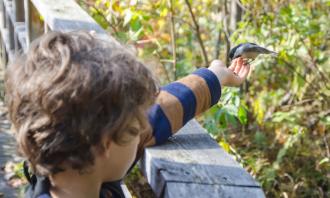Children with BWS are larger than normal despite most are born prematurely. Newborns with BWS are at risk for serious problems, but children who survive infancy generally do well.
What causes Beckwith-Wiedemann syndrome?
Most doctors agree that BWS is a genetic disorder. Although they appear to have isolated the gene responsible for the disorder, BWS is not currently preventable.
Is Beckwith-Wiedemann syndrome serious?
Yes. Children born with BWS are at increased risk for certain cancers, hypoglycemia, feeding problems, seizures and breathing problems. Children with BWS who survive infancy generally do well.
Can I prevent Beckwith-Wiedemann syndrome?
There is currently no way to prevent BWS. If there is an incidence of BWS in the family, you may want to consult a genetic counselor before becoming pregnant.
How do I know if my child has Beckwith-Wiedemann syndrome?
Children with BWS may have one or several of the following symptoms:
- Abdominal wall defects
- Ear lobe creases
- Enlargement of some organs and tissues
- External ear abnormalities
- Large size
- Large, prominent eyes
- Large tongue, sometimes protruding
- Lethargy
- Low blood sugar (hypoglycemia)
- Small head
- Poor feeding
- Seizures
- Undescended testicles (cryptorchidism)
How do I treat Beckwith-Wiedemann syndrome?
Children with BWS may require surgery to repair abdominal defects and intravenous feedings to treat hypoglycemia. Other symptoms may require monitoring and treatment as needed.
Should I call the doctor?
Most children with BWS are diagnosed at birth. However, if your newborn displays some of the symptoms above, contact your doctor for an evaluation. He can help you develop a treatment plan.
What you need to know about Beckwith-Wiedemann syndrome?
- BWS is a growth disorder thought to be genetic.
- Children with BWS who survive infancy generally have a good prognosis.
- Children with BWS are at increased risk for tumors, hypoglycemia, feeding problems, seizures and breathing problems.
Written by Rebecca Stigall for Kidspot, Australia’s parenting resource for family health. Sources include Better Health Channel, NSW Health and Health Insite.






















